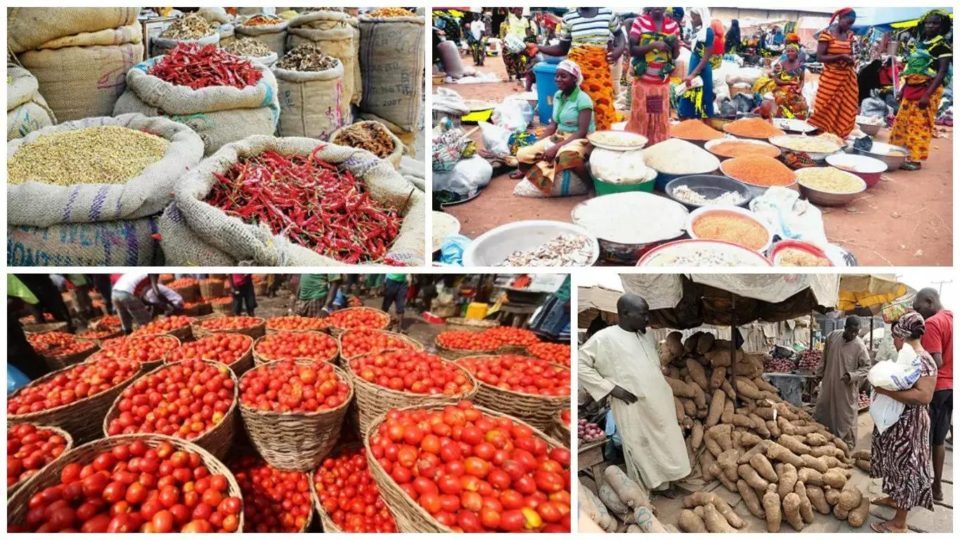Nigeria’s consumer price index which measures inflation, rose to 11.40% in May 2019, according to the monthly inflation report released by the National Bureau of Statistics (NBS).
According to the NBS report, year-on-year, inflation increased by 0.03% points higher than the 11.37% rate recorded in April 2019.
Also, food inflation rose at 13.79% from 13.70%, while Core inflation dropped to 9.00% from 9.30% recorded in the previous month.
Food index on the rise
Analysis of the Bureau’s report that the composite food index rose by 13.79% in May 2019 compared to 13.70% in April. Meanwhile, the NBS explained that the rise in the food index was caused by increases in prices of Meat, Oils and fats, Bread and cereals, Potatoes, yam and other tubers, Fish, Milk, cheese and egg, and Vegetables.
Also, on a month-on-month basis, the food sub-index rose by 1.41% in May 2019, up by 0.27% points from 1.14% recorded in April 2019.
However, the average annual rate of change of the annual Food sub-index for the twelve-month period ending May 2019 was 13.37%, which implies a 0.03% points from the average annual rate of change recorded in April 2019 (13.34%).
Inflation on “all items” inches down
According to the Bureau’s report, ”All items less farm produce” which is otherwise known as core inflation stood at 9.0% in May 2019, down by 0.3% when compared with 9.3% recorded in April 2019. On a month-on-month basis, the core sub-index increased by 0.75% in May 2019. This was up by 0.05% when compared with 0.70% recorded in April 2019.
While giving further breakdown on the increase in core-sub index inflation, NBS stated that the highest increases were recorded in prices of Domestic and household services, Tobacco, Actual and imputed rentals for housing, Medical, Dental and Hospital services, Cleaning, repair and hire of clothing, Repair and hire of footwear and Repair of household appliance.
The average 12-month annual rate of change of the index was 9.77% for the twelve-month period ending May 2019; this is 0.14% points lower than 9.91 percent recorded in April 2019
States Inflation rose up in the north
In the month of May 2019, the northern states of Nigeria maintain the highest inflation on all items. The top three states with the highest inflation rate include Kebbi (15.76%), Bauchi (14.97%) and Kaduna (13.74%),
However, Abia (9.91%), Cross River (9.68%) and Kwara (8.45%) recorded the slowest rise in the headline Year on Year inflation.
Also in May 2019, food inflation on a year on year basis was highest in Kaduna (17.10%), Kebbi (18.90%) and Gombe (16.90%), while Kogi (11.80%), Rivers (11.70%) and Abia (10.90%) recorded the slowest rise.
Urban and rural inflation spike
As against the previous month, urban and rural inflation rose in May 2019. Basically, the Urban inflation rate increased by 11.76% in May 2019 from 11.70% recorded in April 2019, while the rural inflation rate increased by 11.07% in May 2019 from 11.08% in April 2019.
Analysis on monthly basis shows that urban index rose by 1.15 percent in May 2019, up by 0.15 points from 1.00 percent recorded in April 2019, while the rural index also rose by 1.07 percent in May 2019, up by 0.17 from the rate recorded in April 2019 (0.90%).
Impacts on the economy
The rise in Nigerian’s inflation rate in the month of May 2019 makes it the second time in a row that inflation will inch up after recent increases. As inflation inches up for the second consecutive months, it means affected items captured by the Bureau witnessed a quick rise in terms of prices.
While the Central Bank of Nigeria (CBN) has reiterated its move towards curtailing the rise in inflation by holding key interest rates indicators constant in recent times, despite this, inflation still inched up and this can affect economic agents in the following ways:
- Controlling inflation is seen as a healthy stimulus for the economy as a whole, but it can also be quite challenging to keep in check. Spike in inflation for the month suggests that small businesses should remain mindful of its effects.
- Spike in inflation also suggests that businesses revenue may slightly deplete as the purchasing power of consumers drops, while this may also worsen export and growth for the period under review.
- The prices of food items listed by the Bureau under the food index may rise slowly, which means consumers may have to brace up for the slow rise in prices.















